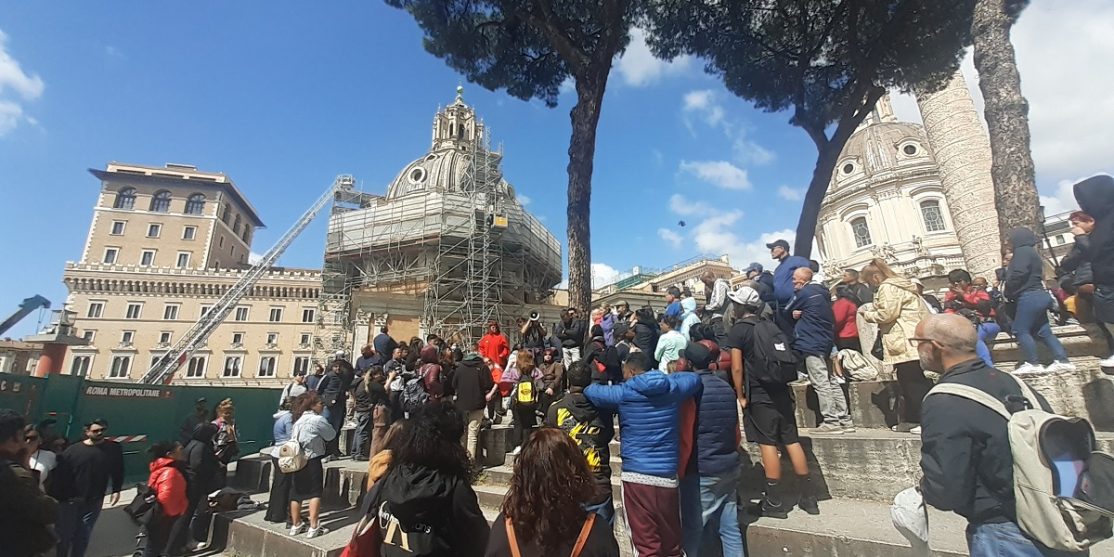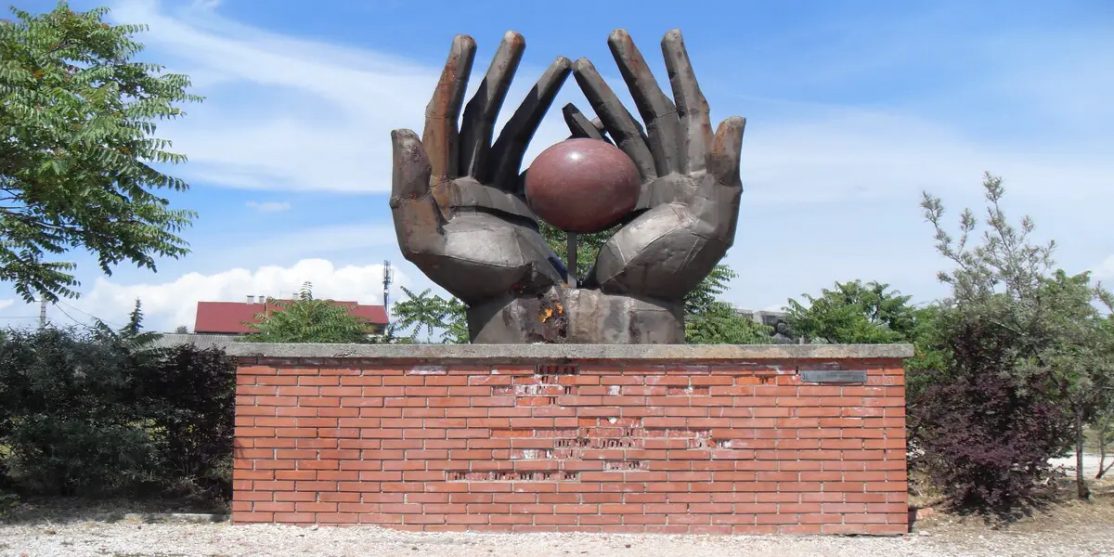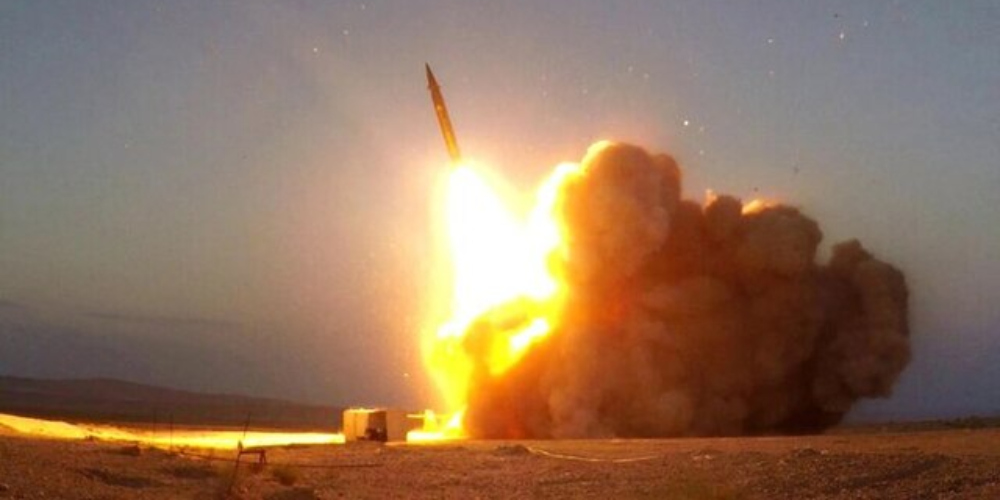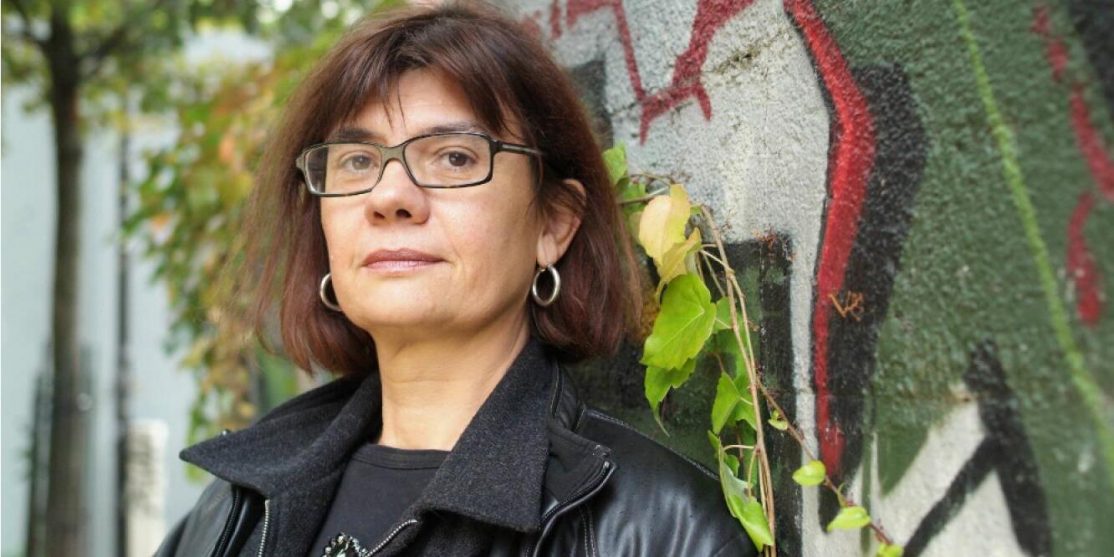ROMA
Communism, or on Making Something Possible
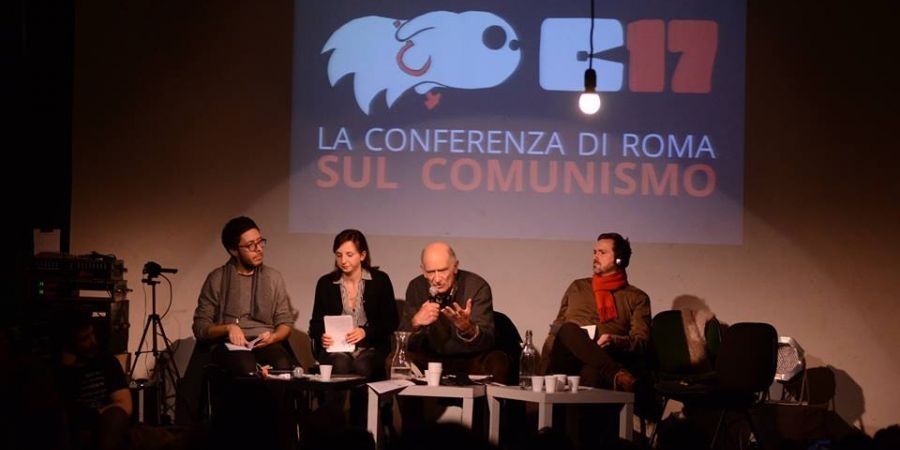
• Comunismo o il segno del possibile
For five days in a row thousands of people literally swarmed the C17-The Rome Conference on Communism, held at Esc and at the National Gallery. Thousands of people visited the exhibition and conference Sensible of the Common (at the National Gallery) . An extraordinary success, which will certainly leave a mark. An even greater success if one considers the subject being debated: communism. A word that has been forgotten, offended, mispronounced, cursed, that still fuels the hatred of reactionary writers, and that has suddenly taken centre stage. A stage bustling with bodies, controversies and passions. Would the same have happened if the topic had been a different one? Perhaps even a radical theme, but with the omission of the word communism? The answer is clear: no.
[All the videos of the conference]
It is not hard to imagine the objections, especially because they come from those who like to write about something before seeing it, who prefer to speak about something without having ever been there, without ever experiencing anything first hand. ‘A nostalgic meeting, yes it was crowded, but that’s because of the centenary’, ‘the same old extra-parliamentary left, a lot of them, but all losers’. Facts create friction, and mean words are empty: three quarters of the participants were young or very young (people from at least three generations took part), and of these three quarters at least half were activists from around the world (Germany, Spain, Greece, Sweden, UK, Russia, Argentina, Japan, USA, etc.). The participation was also a lively one, as the event consisted of conferences but also of dozens of speeches given during workshops and at the final assembly. It was a collective stance.
Let’s go back to where we started off: why such a turnout at a conference on communism? And why now, at a time when Trump has been inaugurated, when war and barbaric acts are spreading, neoliberalism is becoming nationalized and economic catastrophe continues to repeat itself? I will try to offer a simple answer, borrowing a sentence by a well-known philosopher — Gilles Deleuze — who never ceased to think of desire as a form of creative potency: ‘Make something possible, or I’ll suffocate’. The present offers two routes — indeed the violence of capital has wiped out all possibility of reformist mediation — which are New Labour and Social democracy. A new primitive accumulation is taking place, a chronic one, founded on an extractive process of value that is becoming increasingly brutal. In contrast, communism is what makes something possible. Trump has been sworn in, but five hundred thousand women have marched on Washington, and three million people have taken to the streets around the world: to be a communist means to take sides, also and above all in the face of catastrophe. To be communist means to be aware of the fact that “the city is divided”, always, also when the power play is not favourable and when the resistance put up by the poor is crushed. Communism is the alternative, precisely now, at a time when neoliberalists in command obsessively repeat the mantra ‘there is no alternative’.
More questions come to mind: why, if capitalism has triumphed everywhere and is organized, as some say, in a totalitarian way, now that it has snatched even our soul, why does it continue to attack relentlessly? If social cooperation and technological innovation have been completely taken over by capitalism, why increase the violence of accumulation? Why the enclosures, expulsions, displacements, racial wars and war in general, if the 1% controls the world — unobstructed? Capitalism warns us that – and these extraordinary days of debates and conferences have confirmed this – capitalism is made up of relations, that technical innovation and linguistic machines are contested territories, that social cooperation exceeds working time. Optimism? No, calm revolutionary realism.
C17 was not a symphony. The voices were many, diverse, in many cases contrasting. There were those who supported the idea of communist institutions as a radical alternative to the State, and those who would prefer to retain some or many functions of the State; some defended the central role played by the party, while others claim this role is of the protest movements; some stressed the power of capitalism (and of its algorithmic control over cooperation), while others gave more importance to living labour and its relative autonomy. All who took part, however, agree that future communism depends on a radical critique of difference and neutral universality. C17 presented a heterogeneous territory, often dissonant, certainly polifonic, and yet common. Common in that the search for a perspective able to highlight the struggles and social turmoil – beyond the event – is a shared one. During the conference what became manifest is the desire to “think big”, without ever giving in to populist alarmism. The large conclusive assembly, where hundreds of people discussed past and future objectives, was a clear indication of this.
C17 will not produce a new Manifesto, but a series of propositions for a future Manifesto. Differences will not be eliminated, and the writing process, which will be structured around a first draft, will be collective. The final assembly has decided that C17 will be followed by a C18, and by many more in the future, to be held elsewhere, not in Italy. Not a communist festival, rather a transnational workshop for the production of theoretical and political thought; combined and resonating with social struggles and movements. From questions to prepositions, and from these to a Manifesto. This is how we will proceed. It will not be easy, obviously, because it is never easy to forego sectarianism – endemic in Italy – and rise to the challenge, which might even mean betraying traditional views of reference. Actors and paradigms are never self-sufficient, and what is needed are open processes, the will to set sail, and a great deal of courage.

